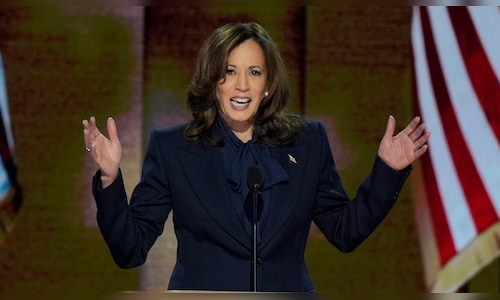The proposal, described by a Harris campaign official on condition of anonymity, would increase the deduction from $5,000 to $50,000. That figure, the official said, would help cover what the campaign says is an average cost of $40,000 to start a small business.
The move is the latest in an escalating duel over tax policy between Harris and Trump, the Republican nominee, with much at stake for the U.S. economy. The next president will be poised to overhaul tax policy as Washington prepares to rewrite the code next year.
A raft of tax cuts are set to expire in 2025 and the two candidates are putting forward rival budget-busting proposals, such as expanded tax credits for children and federal tax breaks for tipped wages that could shift tax burdens to the public and come at a high cost.
The new proposals come as Harris lays out a policy agenda just over a month after replacing President Joe Biden on the Democratic ticket and about two months before the election. The vice president has promised to make protecting the middle class a centerpiece of her so-called Opportunity Agenda, with measures to shield homes from high prices, but critics have attacked the vice president, saying her plans so far have been short on details.
Like Harris’ other proposals, the small-business tax measures revive ideas backed by Biden, other Democrats and even Trump. President Barack Obama in office called on Congress to expand tax breaks for small businesses and ease regulatory burdens on startups.
25 million applications
Harris will unveil her small business tax proposals in a speech Wednesday in New Hampshire. She will set a goal of 25 million new small business applications in the first term of a potential Harris administration, up from a record 19 million so far under Biden, according to the official.
To meet that goal, Harris also plans to propose measures to cut red tape for startups, including developing a standard deduction to save small business owners time when filing their taxes. The Democratic candidate will also call for reducing occupational licensing barriers that make it difficult for workers to practice their trades in other states or for businesses to expand into other states. And she will encourage state and local governments to ease regulatory hurdles as well.
Harris also plans to create a small business expansion fund that would allow community banks to cover interest costs when startups try to expand, particularly in regions that have historically struggled to secure investment. If elected, Harris will also commit to ensuring that one-third of federal contract funds go to small businesses, expanding opportunities in rural areas and underserved communities.
If Harris becomes president, she will have to deal with small business taxes during her first year in office. Small businesses across many sectors will face a tax hike at the end of next year, when a 20% deduction for privately-owned or pass-through tax companies expires.
About 90% of U.S. businesses are organized as pass-through enterprises, and they can range from small convenience stores to private equity funds. The law allows business owners whose income is reported on their personal tax returns to claim a deduction of up to 20% of their income.
That tax cut was part of Trump’s 2017 tax overhaul, which also included cuts to individual tax rates and an expansion of the child tax credit. Those tax cuts are set to expire at the end of 2025 if Congress doesn’t renew them.
Trump’s pledge to cut taxes is a centerpiece of his populist economic agenda and has won him the support of many business leaders in his third campaign for the White House. The former president has said he hopes to keep in place significant tax cuts for both businesses and corporations, and has proposed eliminating taxes on tipped wages and Social Security income, as well as expanding the child tax credit.
Harris has said she would support eliminating tip taxes, but has proposed raising levies on the wealthy and corporations to help offset the deficit impact of her other proposals.
The economy is one of the defining issues of the 2024 race, with households under pressure from high prices even as Biden has sought to highlight investments in domestic infrastructure and manufacturing.
Those economic anxieties threaten to undermine Harris’s campaign as Trump seeks to link her to Biden’s handling of the economy and the poor ratings voters give the incumbent president.
Harris has already introduced measures aimed at providing relief to first-time homebuyers and curbing the cost of rent and food.
Disclaimer:
The information contained in this post is for general information purposes only. We make no representations or warranties of any kind, express or implied, about the completeness, accuracy, reliability, suitability or availability with respect to the website or the information, products, services, or related graphics contained on the post for any purpose.
We respect the intellectual property rights of content creators. If you are the owner of any material featured on our website and have concerns about its use, please contact us. We are committed to addressing any copyright issues promptly and will remove any material within 2 days of receiving a request from the rightful owner.

